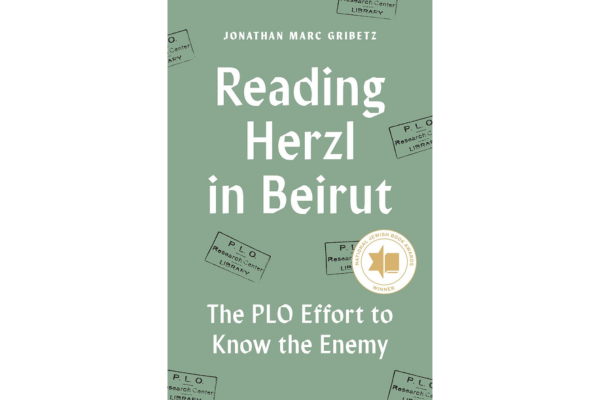
Reading Herzl in Beirut
with Jonathan Gribetz, Princeton University
In September 1982, the Israeli military invaded West Beirut and Israel-allied Lebanese militiamen massacred Palestinians in the Sabra and Shatila refugee camps. Meanwhile, Israeli forces also raided the Palestine Liberation Organization Research Center and trucked its complete library to Israel. Palestinian activists and supporters protested loudly to international organizations and the Western press, claiming that the assault on the Center proved that the Israelis sought to destroy not merely Palestinian militants but Palestinian culture as well. The protests succeeded: in November 1983, Israel returned the library as part of a prisoner exchange. What was in that library?
Much of the expansive collection the PLO amassed consisted of books about Judaism, Zionism, and Israel. In Reading Herzl in Beirut: The PLO Effort to Know the Enemy, from which this talk comes, Jonathan Marc Gribetz tells the story of the PLO Research Center from its establishment in 1965 until its ultimate expulsion from Lebanon in 1983. Gribetz explores why the PLO invested in research about the Jews, what its researchers learned about Judaism and Zionism, and how the knowledge they acquired informed the PLO’s relationship to Israel.
Jonathan Marc Gribetz is Professor of Near Eastern Studies and Judaic Studies at Princeton University. He is the director of the Institute for the Transregional Study of the Contemporary Middle East, North Africa, and Central Asia, and the editor of the Association for Jewish Studies journal, the AJS Review. Gribetz is the author of Defining Neighbors: Religion, Race, and the Early Zionist-Arab Encounter (2014) and Reading Herzl in Beirut: The PLO Effort to Know the Enemy (2024).
Located in 251 Journalism Building, 242 W. 18th Avenue, Columbus, OH 43210
Supported by the Thomas and Diann Mann Lecture Series on Jews, America, and Israel
